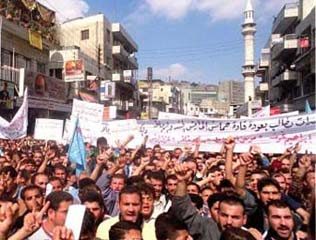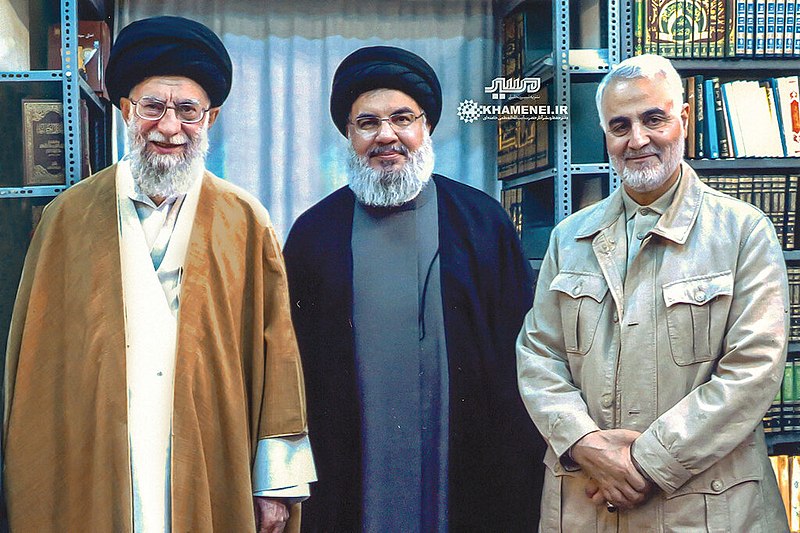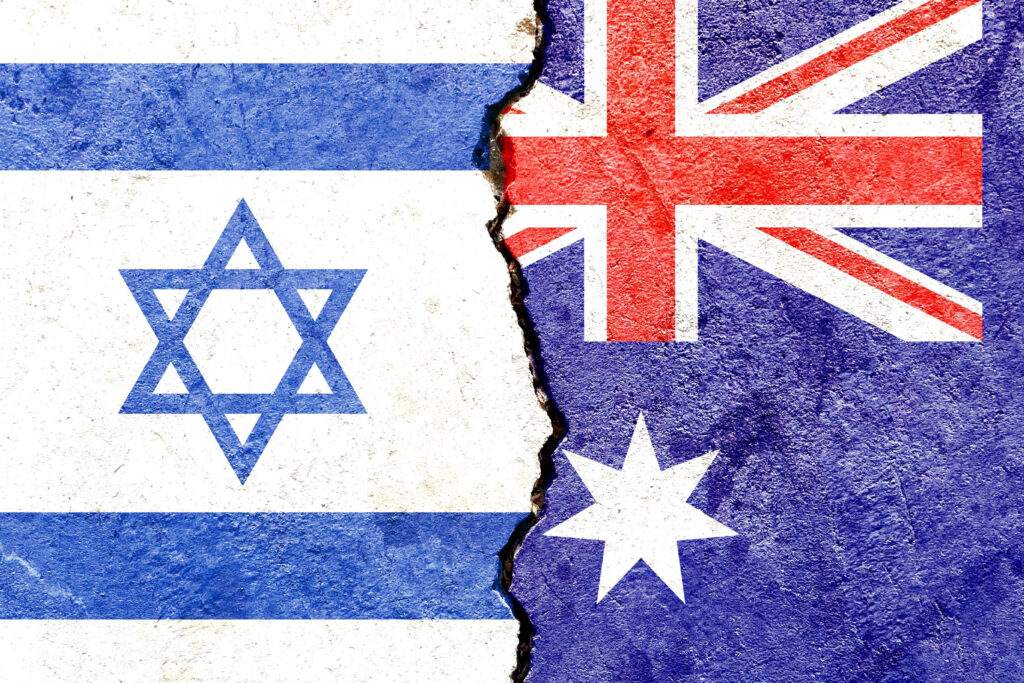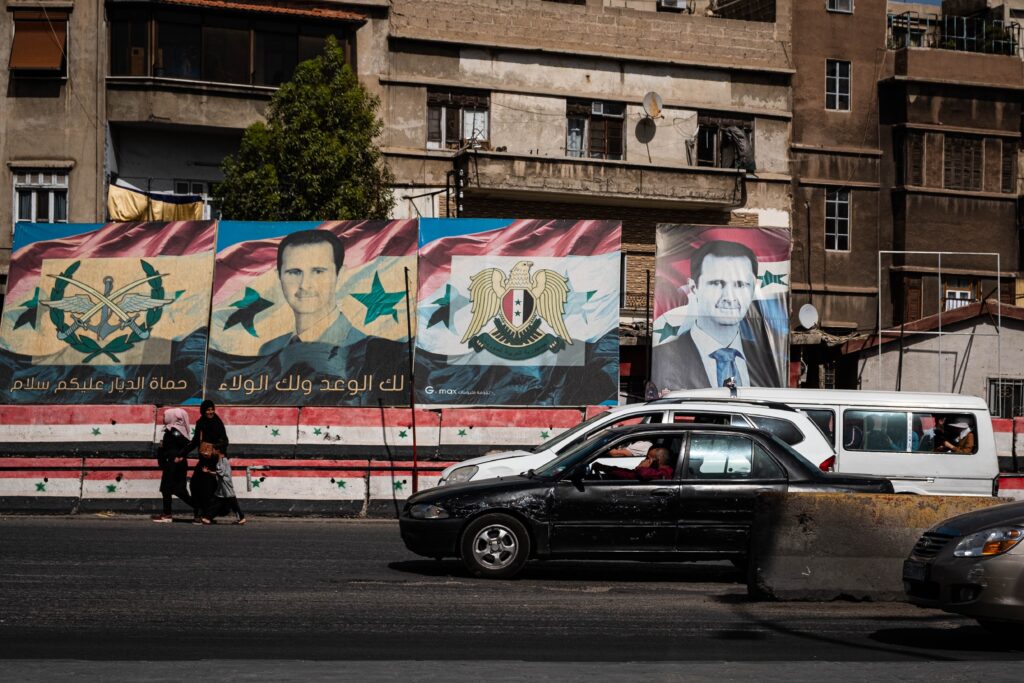UPDATES
The regional decline of the Muslim Brotherhood?
Oct 10, 2013

Update from AIJAC
October 10, 2013
Number 10/13 #03
This Update deals with increasing signs across the Middle East that – independently of the overthrow of the Egyptian government by the military in July – the Muslim Brotherhood, the parent organisation for all modern Islamists, is on the skids. If this trend persists, it would be a major reversal of what once seemed to be the primary direction of the “Arab Spring” instability which has been rocking the region since late 2010 – and seemed previously to be mostly benefiting Islamists.
First up, offering an overview of this apparent development, is Palestinian-American analyst Hussein Ibish. Ibish reviews the apparently poor prospects of the Brotherhood in various countries including Egypt, Morocco, Tunisia, Jordan, Libya, Syria and Gaza. Ibish also discusses the apparent strength of the more radical Salafist Islamists in some countries, but argues that the chances of these movements actually achieving real political power in any state is very small – not least because their political patrons largely do not want to see that happen. For Ibish’s argument that the whole Muslim Brotherhood is now looking like a a “nearly 100-year-old failed experiment” that has reached its end, CLICK HERE.
Next up, a more specific case-study of this trend comes from journalist Michael Totten, who looks at the fall of the Islamist-led government of Tunisia last week – replaced by a technocratic government until the next elections – as well as the decline of the Muslim Brotherhood-affiliated Ennahda party which dominated it. He points out that Ennahda was only able to sell itself to Tunisians by running on a very moderate platform but quickly lost support once in power by failing to live up to it. Totten, who has travelled widely in the Middle East, says Tunisia is the only “Arab Spring” country he remains cautiously optimistic about. For the rest of what he has to say, CLICK HERE.
Finally, Washington Institute scholar David Schenker examines the state of the Muslim Brotherhood in Jordan. He notes that in a way that would have been all but unthinkable as recently as a year ago, the organisation is experiencing a major crisis and a significant erosion of its influence in the Hashemite kingdom. As Schenker explains knowledgeably, the reasons are complex, involving some significant tactical errors, a growing public fear of extremism, a shift among Islamists towards Salafism, and major divisions in both the population and the Islamist political establishment. For all the details, CLICK HERE.
Readers may also be interested in:
- Israeli strategic expert Col. Jacques Neriah looks at the increasing pressure, particularly from Egypt, on another Brotherhood affiliate – Hamas in Gaza.
-
Orit Perlov, an Israeli academic studying Arab social media, says that the message of violent “resistance” against Israel emanating from Hamas and Hezbollah is just not resonating with Palestinian and Lebanese young people online, who are concerned mostly with domestic issues.
-
George Packer of the New Yorker reminds everyone that the key to defeating Islamist violence is winning the war of ideas within Islam.
- Isi Leibler writes about his reaction to Netanyahu’s UN speech last week. Another interesting attempt to understand what Netanyahu was trying to achieve at the UN and in meetings with US President Obama comes from former American senior official Elliot Abrams.
- A few good pieces on the significance of the passing on Monday of the late, highly influential Israeli Sephardic Rabbi Ovadia Yosef from the Jerusalem Post, Yair Rosenberg of Tablet magazine, and Israeli columnist Dan Margalit.
- British academic Prof. Alan Johnson on the reluctance of too many to speak out about the growing scourge of Middle East Christianophobia.
- Some examples from the many stories and comments now appearing at AIJAC’s daily “Fresh AIR” blog:
- Posts by Sharyn Mittelman on the Palestinian reaction to an attack on a 9-year-old girl, and on the tendency by too many to treat Iranian President Hassan Rouhani as a proven peacemaker before he has shown any sign of an actual willingness to make substantive compromises.
- Allon Lee’s latest “media week” column.
- A notice on the upcoming appearance in Melbourne of noted Israeli strategic expert and AIJAC guest Dr. Efraim Inbar.
Is this the end of the failed Muslim Brotherhood project?
Is the Muslim Brotherhood dying? In Egypt and throughout the Arab world, Brotherhood-affiliated parties are suffering an unprecedented series of setbacks that cast real doubt on the long-term viability of that version of Islamist politics.
The blow the Brotherhood has received in Egypt is exceptionally severe. Most of its senior leaders are under arrest, and its ability to mount mass protests appears debilitated. There is a pending court order mandating its disbanding and the seizure of its assets. And none of this seems to bother most Egyptians.
It’s not clear when or how the Brotherhood in Egypt can recover from this unprecedented crisis.
What is less widely understood, however, is that Brotherhood-affiliated parties across the region – many of which recently seemed to be on the brink of the political successes they have craved for decades – are suffering extreme setbacks. The Brotherhood’s crisis in Egypt may be particularly dramatic but it is also merely the tip of the iceberg.
A quick regional survey can show how damaged this movement currently is.
In Morocco, the Justice and Development Party might be in the best shape of all, currently occupying the ineffective office of prime minister. But, while ostentatiously praising the King, it is loudly insisting that it is in no sense whatsoever a Muslim Brotherhood party, or affiliated with it at all except insofar as both identify as Islamist.
This is untrue. They only find it necessary to disavow Brotherhood connections so vigorously because of how regionally discredited the movement has become.
In Tunisia, a coalition of secular political and labour movement forces has forced the Brotherhood Ennahda party government to agree to resignation. Ennahda may still be the largest political party in Tunisia, but it’s unlikely that it could repeat its 2011 parliamentary electoral success since secular and non-Islamist forces are becoming much more organised and coordinated. And it’s always been clear it would be exceptionally difficult for Ennahda to beat a consensus secular candidate in a two-person presidential election or run-off.
So, while Ennahda compromised to survive – and is likely to still wield considerable influence in Tunisia – it may already be past the apogee of its power.
In Libya, the Brotherhood and its allies never gained the political traction they expected, especially given the local backlash against their Qatari patrons. They were routed by the non-Islamist National Forces Alliance in the party section of the parliamentary election. This forced them to rely on highly unpopular militia bullying that produced occasional short-term successes but looks headed for long-term failure.
The Jordanian Muslim Brotherhood, which seemed to be growing from strength to strength a mere year ago, is in utter disarray.
The Syrian Brotherhood was the most influential political force in the opposition after the uprising against the Damascus dictatorship began. But now they seem to have virtually no influence on the conflict or its likely outcome.
Hamas in Gaza is undergoing an unprecedented crisis. It bizarrely made no effort to convince the new Egyptian government that it was not a hostile force, especially with regard to security in Sinai. It is therefore being treated like one.
Egypt has imposed an unparalleled blockade, leaving the economy in shambles. For the first time since 2007, it is now possible to imagine a Gaza no longer under Hamas control.
And in those parts of the Gulf in which the Brotherhood has some presence, its affiliates are coming under intense scrutiny and increasing pressure.
But all of this hardly means that Islamism across the board is enduring a nadir. In several Arab societies, Salafists are either outflanking Brotherhood groups or reaping the benefits of the Brotherhood’s crises.
But there is an important distinction: the main regional financers of the Brotherhood movement actually want them to dominate as many governments as possible in Arab republics. States and wealthy individuals who finance Salafists use them to harass the Brotherhood and to project power. But the primary movers behind the regional Salafist movements don’t actually want to see Salafist governments in Arab republics.
If the ideology and practices of more moderate Brotherhood parties have proven unworkable and popularly unacceptable in power, that can only apply far more intensively to Salafist groups. The plausibility of Salafist rule in any post-dictatorship Arab society is, for those two reasons, virtually nil.
This may not be the end of the Muslim Brotherhood but its region-wide crisis is so severe that significant ideological and practical adaptation will be unavoidable for those flexible enough to learn any lessons. The Moroccan and Tunisian branches are already unhappily compromising to survive.
But the Muslim Brotherhood may be dying at least in the sense that what ultimately emerges from the current wreckage will be unrecognisably different. Only a radical change in fortunes across the region is likely to forestall such a process.
So during the very period in which many Arabs and westerners alike expected Brotherhood domination in many Arab countries, we may instead be witnessing the death throes of a nearly 100-year-old failed experiment.
Hussein Ibish is a senior fellow at the American Task Force on Palestine, a columnist for Now Media and blogs at www.ibishblog.com
Back to Top
————————————————————————
The Fall of Tunisia’s Islamists
Michael J. Totten
World Affairs, 4 October 2013
Ennahda, the Tunisian Islamist party affiliated with the Muslim Brotherhood, has been forced from power by an overwhelming secular opposition.
I didn’t know this was going to happen, but I had a pretty strong sense that it would. Tunisia is a modern, pluralistic, civilized place. It’s strikingly liberal compared with most Arab countries. A person couldn’t possibly show up in Tunis from Cairo and think the two are remotely alike. Egypt is at one extreme of the Arab world’s political spectrum, and Tunisia is at the other.
The Islamists won less than half the vote two years ago, and the only reason they did even that well is because Ennahda ran on an extremely moderate platform. They sold themselves to voters as Tunisia’s version of Germany’s Christian Democrats.
It was a lie, of course, and once Tunisians figured that out, support for Ennahda cratered.
The assassination of leftist politician Mohamed Brahmi this summer pushed the country over the edge. Ennahda didn’t kill the guy. A Salafist terrorist cell did the deed. But Ennahda has been playing footsie with the Salafist fringe while the rest of the country recoils in horror, so Ennahda is getting blamed too.
Unlike in Egypt, the Islamists weren’t thrown out by force. Tunisia doesn’t have an Egyptian-style military that’s big and powerful and ideological enough to occupy the country and rule it through a junta. Also unlike in Egypt, Tunisia has a critical mass of secular citizens who won’t put up with even a whiff of theocracy.
The other reason Ennahda’s partial victory was possible two years ago is because they had an organizational advantage after the dictator Ben Ali fell. They had the mosques while the secular parties had nothing. And since the Islamists were smart enough to pretend to be moderates, they managed to get moderate people to vote for them.
That’s over now. In the meantime, the liberal and leftist parties have had a lot more time to get organized and merge into larger entities so they can avoid the vote splitting that hurt them so much last time. When a single religious party squares off against dozens of secular parties, it doesn’t take a political or mathematical genius to figure out which will get the most votes.
Tunisia is the one and only Arab Spring country that I’ve been cautiously optimistic about. Libya is too much of a mess, Egypt was a lost cause begin with, and Syria is in worse shape than Bosnia in the mid-1990s. Tunisia, though, is doing as well as could be expected.
And get this: now that Ennahda is out, not a single post-Arab Spring country is ruled by Islamists. All of them are secular now.
Back to Top
————————————————————————
Down and Out in Amman: The Rise and Fall of the Jordanian Muslim Brotherhood
David Schenker
Foreign Affairs, October 2, 2013
Given the numerous external threats facing Jordan and the reversal of the Brotherhood’s political fortune at home, the organization is now the least of King Abdullah’s worries.
Today, the Muslim Brotherhood in Egypt is down, if not completely out. After the Egyptian military deposed President Mohamed Morsi, a ranking Brotherhood bureaucrat, in July, Egypt’s courts charged him with a litany of felonies and the army cracked down, shooting more than a thousand of his supporters and detaining most of the Brotherhood’s leadership. Last week, an Egyptian court issued an injunction to dissolve the group altogether and seize its assets, outlawing “all activities” by the 85-year year-old Islamist movement. As bad as things are for the Egyptian Brotherhood, however, it isn’t the only chapter of the organization that faces setbacks. More than two years into the Arab revolts that saw Islamist gains in Tunisia, Libya, Syria, and, at least temporarily, Egypt, Muslim Brothers in Jordan are in the middle of their own crisis.
Once a powerful voice for electoral reform, a vocal critic of palace corruption, and the leading opponent of economic normalization with Israel, lately the Jordanian Brotherhood has seen its local influence and standing erode. Other Islamists, too, are finding it hard to capture the public’s attention. Groups in the Jordanian parliament that are unaffiliated with the Brotherhood tried to push forward a bill to “harmonize” legislation with sharia; the motion failed, gathering just 27 of 150 votes. To be sure, the Egyptian Muslim Brotherhood’s authoritarian tendencies, imperious style, and economic mismanagement contributed to the popular alienation of the group. Yet unlike in Egypt, where the military was ultimately responsible for the group’s misfortune, in Jordan the Brotherhood’s setbacks have resulted from both self-inflicted wounds and the changing dynamic of local Islamist politics.
A year ago, it would have been difficult to imagine the Jordanian Brotherhood’s current circumstances. The group’s power was surging as it participated in burgeoning demonstrations with tribal and secular opposition forces against King Abdullah II’s government for alleged graft, economic privation, and subsidy cuts. But by the end of last year, this loose opposition coalition had frayed, and protesters, perhaps out of fear of Egyptian- or even Syrian-style chaos, stopped coming out. In January, after failing to compel King Abdullah to overhaul an unfavorable electoral law, the Brotherhood boycotted parliamentary elections with an eye toward undermining the poll’s legitimacy. But without Brotherhood participation, another less prominent, self-professed moderate Islamist political party, known as the Wasat (Center) Party, stepped in and won 16 of 150 seats, securing the largest bloc in parliament. As a result, the Brotherhood lost its claim to the mantle of Islamist leadership in the Kingdom.
Even with that blow, the Brotherhood’s standing remained somewhat elevated thanks to turmoil in neighboring Syria. For a time, it looked like the Syrian Muslim Brotherhood was on the verge of a renaissance, with the regime of Bashar al-Assad close to collapse. In the 1980s, Hafez al-Assad’s regime had dealt with a Brotherhood-led insurgency by killing tens of thousands of Syrian Brothers and making membership in the Sunni group a capital offense. The Brotherhood has long vowed revenge. Its potential rise in Syria would have profoundly negative repercussions for the Western-backed monarchy in Jordan, no doubt emboldening the Brotherhood in Jordan and even leading to cross-border meddling. In fact, shortly after Morsi’s election in Egypt, the Brotherhood interfered in Jordanian politics from Cairo and Doha: in January 2012, it forced Abdul Majid Thunaybat — a senior member of the Jordanian chapter — to resign his seat in the Jordanian Senate, to which he had been appointed by the King. But the prospect of the Brotherhood’s ascendancy in Jordan didn’t last. Much like the response to the 2005 Amman hotel bombings that killed 60 and effectively rolled back support for al Qaeda in the Kingdom, the emergence of al Qaeda-affiliated militants in Syria’s civil war drained popular enthusiasm for the Brotherhood in Jordan.
Even as the general Jordanian population grows less inclined toward the Brotherhood because of fears of creeping extremism, part of the Islamist population grows disenchanted with the Brotherhood because it is not extreme enough. As the war in Syria festers, Jordan has seen a proliferation of Islamist competitors, most notably the Salafis, who are followers of a strict, Sunni revivalist movement. Salafis have long had a presence in the Kingdom, and their domestic popularity has spread as the movement gains support in the region. Abu Musab al-Zarqawi, the leader of al Qaeda in Iraq who hailed from the northern Jordanian town of Zarqa, is but the most famous example. As of April, reports in the local press indicated that some five hundred Jordanian Salafis were fighting in Syria alongside the jihadist group Jabhat al-Nusra. The almost daily press coverage of Jordanian Salafis returning home from Syria in body bags — and being recruited for the Syrian jihad — seems to confirm these numbers.
Meanwhile, shifts within the Muslim Brotherhood toward Hamas have contributed to the Salafis’ rise. Historically, Islamism in Jordan found equal appeal across the country’s traditional social divide of native East Bankers — many of whom have deep tribal roots in the area — and the majority of the population that is of Palestinian origin. Lately, though, as the leadership of the Jordanian Brotherhood and its political party, the Islamic Action Front, has changed and warmed toward Hamas — partly due to frustration with the Fatah-controlled Palestinian Authority, which governs the Israeli occupied West Bank and manages the peace process — some East Bankers have started to view the organization as more Palestinian. For many East Banker Islamists, who, like their less religious tribesmen, remain suspicious of Palestinians in the Kingdom, this shift in orientation has made the Brotherhood less appealing. Along with the fighting in Syria and the regional trend toward Salafism, it also appears to have further enhanced the appeal of Jordanian Salafi groups at the expense of the Brotherhood.
These long-standing social divisions within Jordan between native East Bankers and those of Palestinian origin have also created new fissures among the country’s Islamists. Since at least 2010, more moderate pro-regime elements in the Muslim Brotherhood, primarily among East Bankers, have clashed with their more hardline counterparts of largely Palestinian origin over personnel appointments and other substantive issues, such as the relative priority of the jihad in Palestine and the widespread allegations of vote-buying during internal Brotherhood elections. More recently, in 2012, the group split over the decision to boycott the 2013 parliamentary and municipal elections. One of these East Banker “doves” — Nabil Kofahi, the scion of longtime Brotherhood leader Ahmed Kofahi — initially bucked the mandated boycott of municipal elections and announced that he would stand for office in the northern town of Irbid. Just days prior to the balloting, however, Kofahi withdrew his candidacy, reportedly to avoid expulsion from the organization. The boycott was ineffective anyway; it drew little attention in Jordan, and tribal candidates and businessmen close to the government won most seats.
But the Jordanian Brotherhood’s own internal divisions extend beyond East Banker versus Palestinian. Last November, Rahil Gharaibeh, a former senior official in the IAF, established the Zamzam Initiative, an organization purportedly dedicated, among other political and economic reforms, to ending the Brotherhood’s “monopoly on Islamic discourse” and emphasizing a more inclusive Islam that does not “alienate the [Jordanian] public.” Although it is impossible to discern his motivations with certainty, Gharaibeh is a thoughtful interlocutor; based on my discussion with him, he seems sincere in his efforts to improve the image of the Kingdom’s Islamists through a more tolerant and pluralistic approach. According to reports in the Arab press, the initiative currently has 700 members, including 100 prominent current and former Brothers. Compared to the Muslim Brotherhood, Zamzam is small, but the upstart organization has attracted the Brothers’ attention. In December 2012, just a few weeks after Zamzam was announced, the Brotherhood’s Guidance Office issued an internal statement that barred its members from dealing with the initiative.
Under increasing pressure at home, the Jordanian Brotherhood has attempted a few desperate, last-ditch plays. For one, it has tried to exploit public outrage at the events in Egypt to win support. Its Web site is replete with articles about Morsi’s removal and statements condemning King Abdullah for being the first Arab leader to visit post-coup Cairo and “legitimate” Morsi’s ouster. In late July, the Brotherhood’s daily newspaper As-Sabil even posted a video of a popular Egyptian cleric named Wagdy Ghonem pleading for the army and the police force to disobey orders and restore Morsi to the presidency. In addition to waning public support, the group also fears an impending palace crackdown. The precedent set by Morsi’s removal, the heightened security threat posed by the war in Syria, and the organization’s currently diminished stature all contribute to a sense of vulnerability. As if to confirm these pressures, last month, the organization’s Deputy General Guide Zaki Bani Rsheid issued an uncharacteristically defensive statement, claiming that the Jordanian Muslim Brotherhood is not in an “emergency and is not peripheralized.” Yet even as the organization criticizes the king, its leaders are currently calling for dialogue with the government — further proof of internal discord.
For now, though, despite these challenges, the Brotherhood in Jordan doesn’t need to fear a campaign of repression akin to what is happening in Egypt. If anything, Jordan’s Muslim Brothers have been overtaken by rapidly changing events in Jordan and across the Arab world. Given the numerous external threats facing Jordan and the reversal of the Brotherhood’s political fortune at home, the organization is the least of King Abdullah’s worries.
David Schenker is the Aufzien Fellow and director of the Program on Arab Politics at The Washington Institute.
Tags: Egypt











